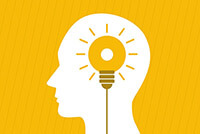
DECEMBER 23 — As I stood by the window of my hotel room in Islamabad, gazing out at the unfamiliar skyline, a sudden question startled me: What am I doing here?
The room was quiet, but my thoughts were not. It wasn’t the first time I had doubted myself. The imposter syndrome that sneaks in before a big presentation or event had decided to pay me an untimely visit. I felt small, out of place, and unsure of why I had travelled thousands of miles from home for an international conference.
Then, instinctively, a voice responded: You are here to present the findings of your PhD work so others can learn from you.
It wasn’t an external voice — it came from within, steady and calm, like a friend I didn’t know I needed. In that moment, I felt a wave of calm wash over me. The anxiety that had gripped my chest loosened its hold.
I realised then how powerful it is to listen to ourselves — not to the voice that doubts, but the one that knows.


This experience reminded me of one of my favourite figures, Aishah bint Abi Bakr, the wife of the Prophet Muhammad (peace be upon him). Aishah was a remarkable woman — known for her intellect, eloquence, and unwavering confidence. She didn’t shy away from speaking up when she knew her voice mattered, whether in matters of faith or justice. She was a scholar, a teacher, and a leader whose contributions to Islamic knowledge are unparalleled.
One of the most striking aspects of Aishah’s character was her sharp intellect and ability to convey complex teachings. Her narrations of the Prophet’s sayings and actions form a significant part of the hadith corpus, and her insights into matters of law and ethics continue to guide Muslims today. It is narrated in Sahih Bukhari that the Prophet Muhammad (pbuh) said: "Take half of your religion from this Humayra (Aishah).”
When I think of her life, I imagine how often she must have encountered moments of self-doubt, given the immense responsibility she carried. As a young woman, she faced scrutiny, challenges, and moments of profound difficulty. Yet she persevered, trusting in her knowledge, her faith, and her purpose.
For instance, during the well-documented incident of the slander against her, known as Hadith al-Ifk, Aishah’s strength and composure shone through. Despite the emotional toll, she remained steadfast and ultimately saw her innocence vindicated by divine revelation (Surah An-Nur, 24:11–26). Her ability to stand firm in the face of such adversity is a testament to her inner confidence and trust in Allah’s justice.
Her courage and self-assurance serve as a reminder to us all: the confident voice within is a gift we should nurture and trust. Aishah’s life teaches us that even in moments of doubt, we can find strength by leaning on our knowledge, our principles, and the faith that our efforts have a purpose.
The inner dialogue we have with ourselves is a daily companion. It can lift us up, or it can hold us back. Unfortunately, the doubting voice often speaks louder, especially in moments of uncertainty.
But the confident voice is there too — waiting for us to give it attention. Training ourselves to listen to it doesn’t mean silencing all doubts. Doubts are natural; they keep us humble and reflective. However, they shouldn’t drown out our belief in our abilities and purpose.
As I prepared to present my research to the conference attendees, I thought about the long hours of study, the sacrifices, and the passion that had brought me here. These weren’t the markers of someone who didn’t belong. They were the markers of someone who had something to offer.
Mind you, this isn’t an overnight process. Learning to trust the confident voice takes practice. It requires moments of stillness, honest reflection, and gentle self-reminders that we are capable and deserving. For me, that moment of clarity in Islamabad wasn’t the first time I had to coax my confident voice forward, and it certainly won’t be the last.
But it taught me an important lesson: our strongest reassurances often come from within. We need to create space for them, to pause and listen, especially when the noise of self-doubt becomes too loud.
And as I finished my presentation that day, I caught a glimpse of a few attendees nodding along and jotting down notes. It struck me that what I was sharing — my research, my passion — was indeed valuable to others.
We all have moments where we question what we’re doing or whether we’re enough. In those moments, I hope you’ll pause and find that confident voice within yourself. It may not shout or demand attention, but it’s there, steady and sure, reminding you of your purpose.
Even when it feels easier not to—true strength always comes from believing in ourselves.
Always and always.
* The author is an English language lecturer at the Academy of Islamic Studies Universiti Malaya, UM Education Centre, Bachok, Kelantan. She may be reached at afiqahanis@um.edu.my
** This is the personal opinion of the writer or publication and does not necessarily represent the views of Malay Mail.
You May Also Like

